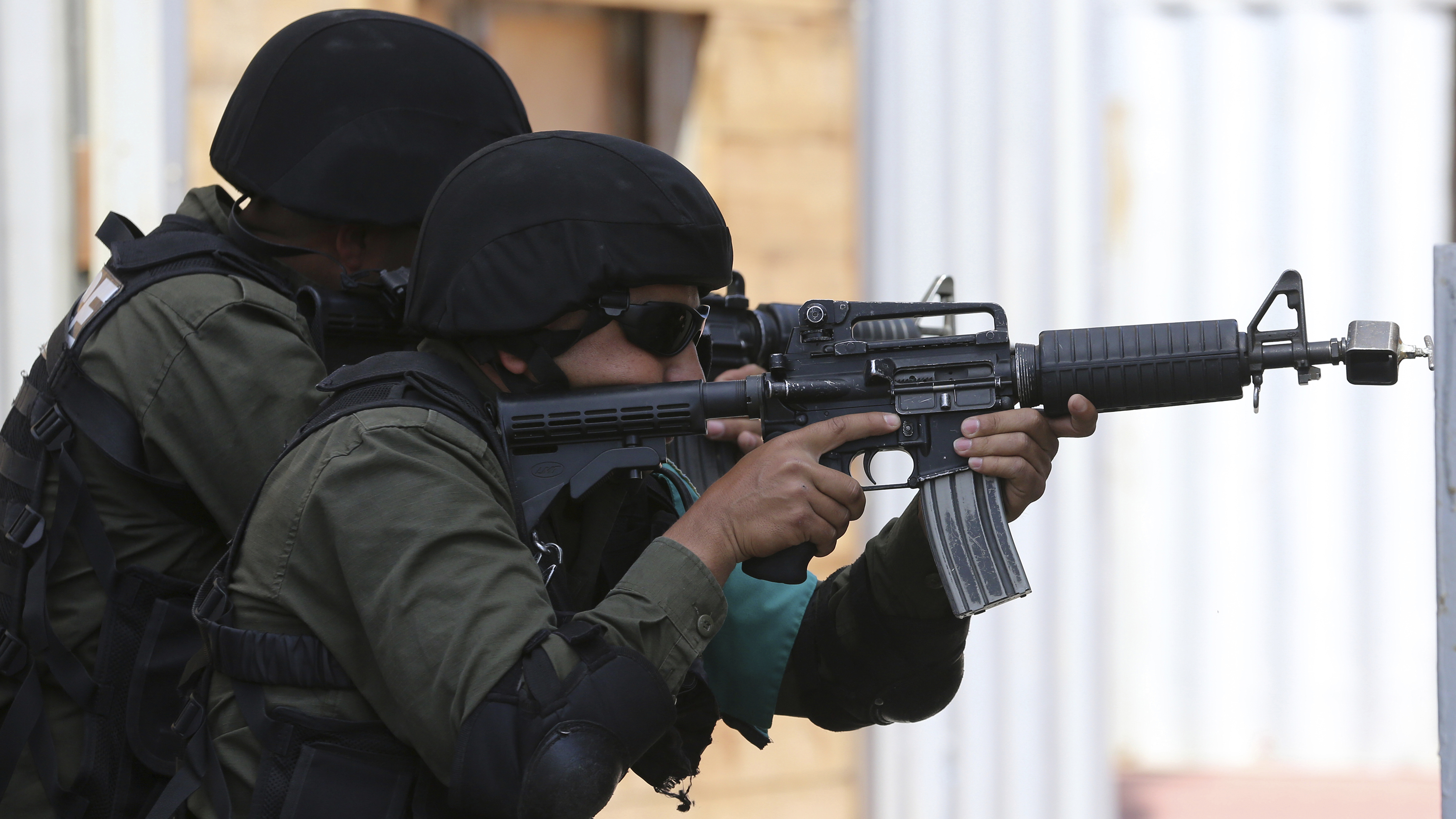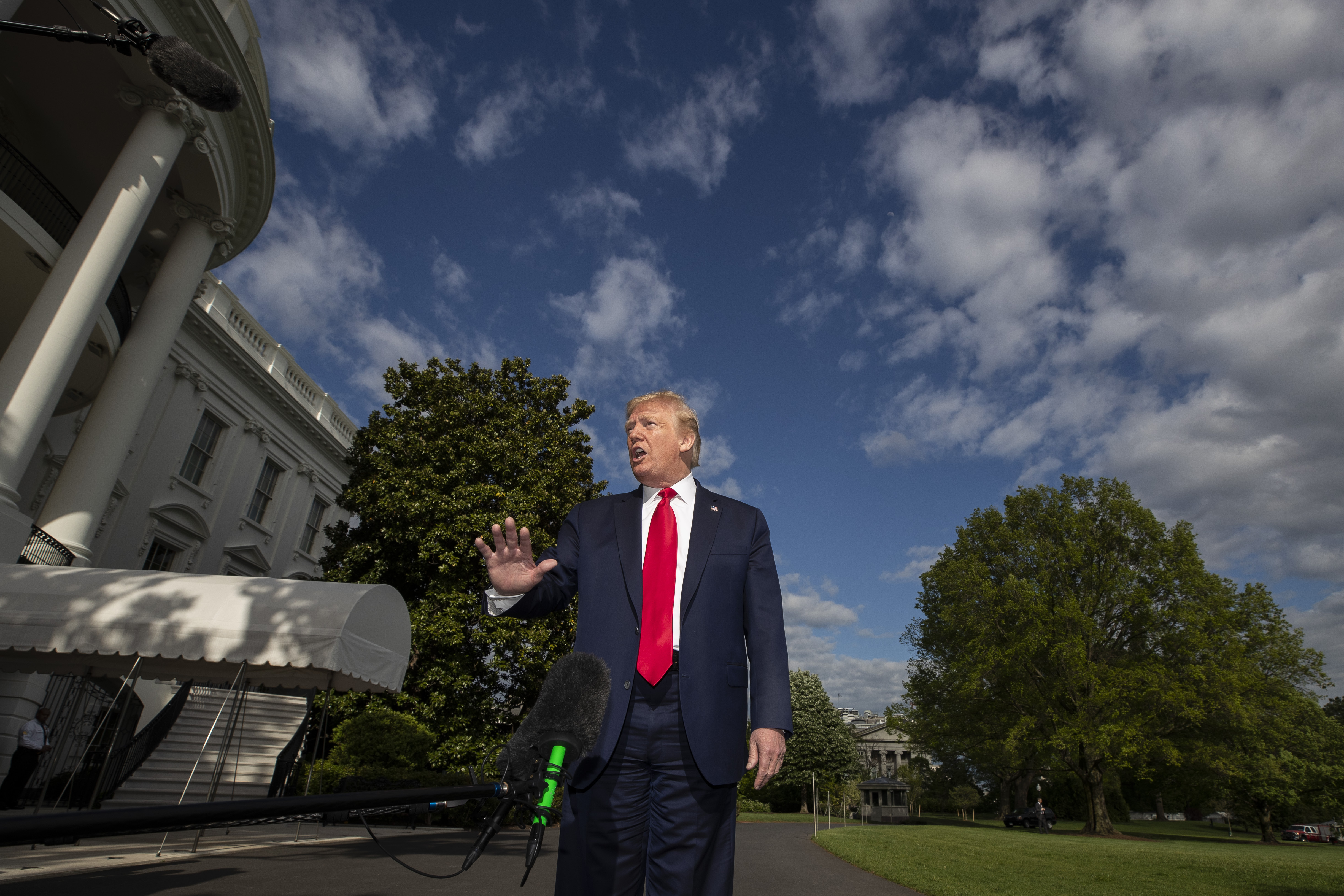
Palestinian security forces participate in a training drill, at the Jordan International Police Training Center, Jordan. March 18, 2018. /AP
Palestinian security forces participate in a training drill, at the Jordan International Police Training Center, Jordan. March 18, 2018. /AP
Editor's note: Wang Jin is an associate professor in Northwest University of China. The article reflects the author's opinion, and not necessarily the views of CGTN.
When Bin Laden was killed by U.S. special forces on May 2, 2011 local time in Pakistan, many people once believed that the world might face a more brilliant and peaceful future without the "master of terrorism."
In the same month, a new round of turbulence and violence was spreading in different Middle East states, more clashes between different ethnic, sectarian and religious groups that later led to severe internal wars and eruptions of conflicts.
Three years later, ISIL, or the Daesh, grew up into the major threat to the stability and safety in this region.
Without doubt, Bin Laden's killing was a historic moment for countering terrorism not only in the U.S., but also the whole world. Bin Laden was the leader of Al-Qaeda, and was perceived as the "spiritual leader" of many extremists in the world. His special experience witnessed the history of radical changes in Middle East from 1970s to 1990s. He should be perceived as a miniature of U.S.' paradoxical role in Middle East, and the unending threats of terrorism and extremism that may deserve more reflection.
As a son of the rich and powerful Laden family in Saudi Arabia, Bin Laden grew up in Saudi Arabia and was educated in Saudi schools. In the 1970s, the collapse of the secular Arab nationalism led by Egyptian leader Gamal Abdel Nasser after the Six-Day war in 1967, and the rise of Islamic political passion led by the Muslim Brotherhood significantly influenced his worldview.
His military experience in Afghanistan around the 1980s helped him construct personal connections with many influential extremists. After his suggestion of leading the "mujahideen" trained in anti-Soviet Union forces in Afghanistan to resist Iraqi threat was rejected in 1990, Bin Laden started to set up his network to launch the terrorist attacks against U.S..
The irony is that the rise of Bin Laden could not be realized without the help from Washington. His terrorism network, or the terrorist group Al-Qaeda, once received much support and assistance from U.S.
Washington once perceived Bin Laden and his friends in Mujahedeen as important forces to resist the Soviet Union in Afghanistan. To put it in this way, it was U.S.' long-term military presence in Saudi Arabia and Middle East that finally turned Bin Laden into a terrorist leader against the "infidels," especially against the U.S.
Besides, it's worth noting that Bin Laden's rise is also attributed to the U.S. ignorance and acquiescence.

President Donald Trump speaks with reporters as he departs the White House, Friday, May 1, 2020, in Washington. /AP
President Donald Trump speaks with reporters as he departs the White House, Friday, May 1, 2020, in Washington. /AP
Bin Laden was treated by Washington as a major killing target only after 9/11 in 2001. Before 2001, Bin Laden had already set up many training bases in Afghanistan, and extremists from his Al-Qaeda network had already launched many terrorist attacks in Africa and the Middle East. With the most sophisticated and powerful intelligence mechanism monitoring the whole world, the U.S. ignored Bin Laden's growth.
It reminds us of a similar scenario in Iraq. Bakr al-Baghdadi was arrested and released from Iraqi prisons controlled and managed by U.S. military forces in 2005 and 2006. And in 2014, Bakr al-Baghdadi set up the ISIL in Iraq and Syria and is still a major terrorism threat to the whole world.
After Bin Laden was killed, terrorism in the world didn't disappear. Bakr al-Baghdadi established a stronger terrorism network that devastated northern Iraq and northern Syria. Terrorism is still threatening the world.
Civil wars in Syria and Libya erupted and continued due to the interventions from Washington, while the "double standard" attitude and intentional measures taken by the U.S. in counter-terrorism campaigns make northern Syria, especially the Idlib province, the home base of many extremists and terrorists who chanted the similar radicalism slogans as Bin Laden and Bakr al-Baghdadi. More Bin Ladens and Bakr al-Baghdadis might emerge from U.S. interventions and ignorance.
Terrorism is the common enemy of all humankind. Strong and united measures are highly needed for international society. While the U.S.' killing of Bin Laden failed to eliminate terrorism, the abandonment of unilateralism and selfish double-standard is the only possible way to build consensus over counter terrorism in the world.
(If you want to contribute and have specific expertise, please contact us at opinions@cgtn.com.)